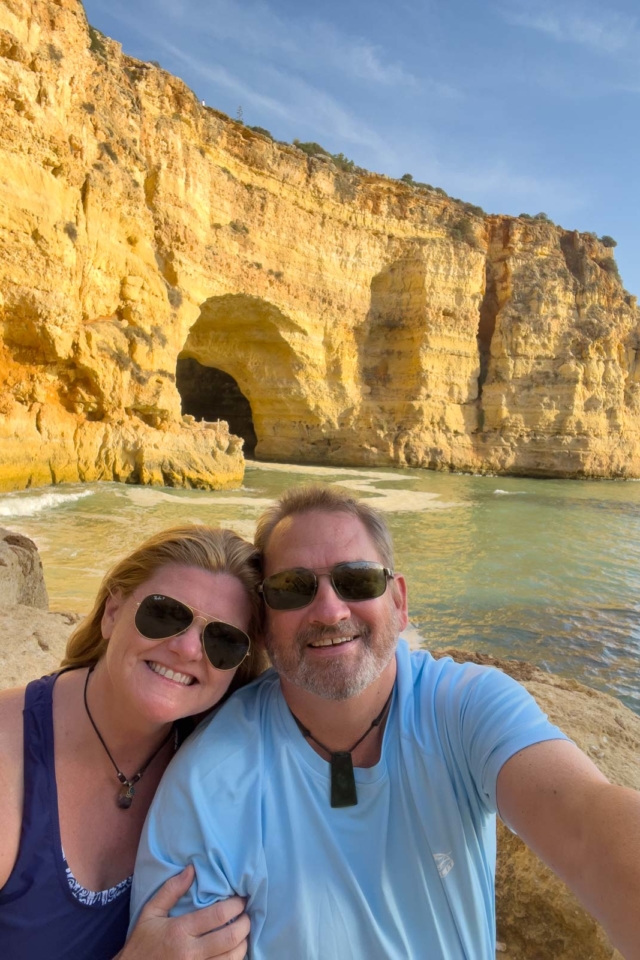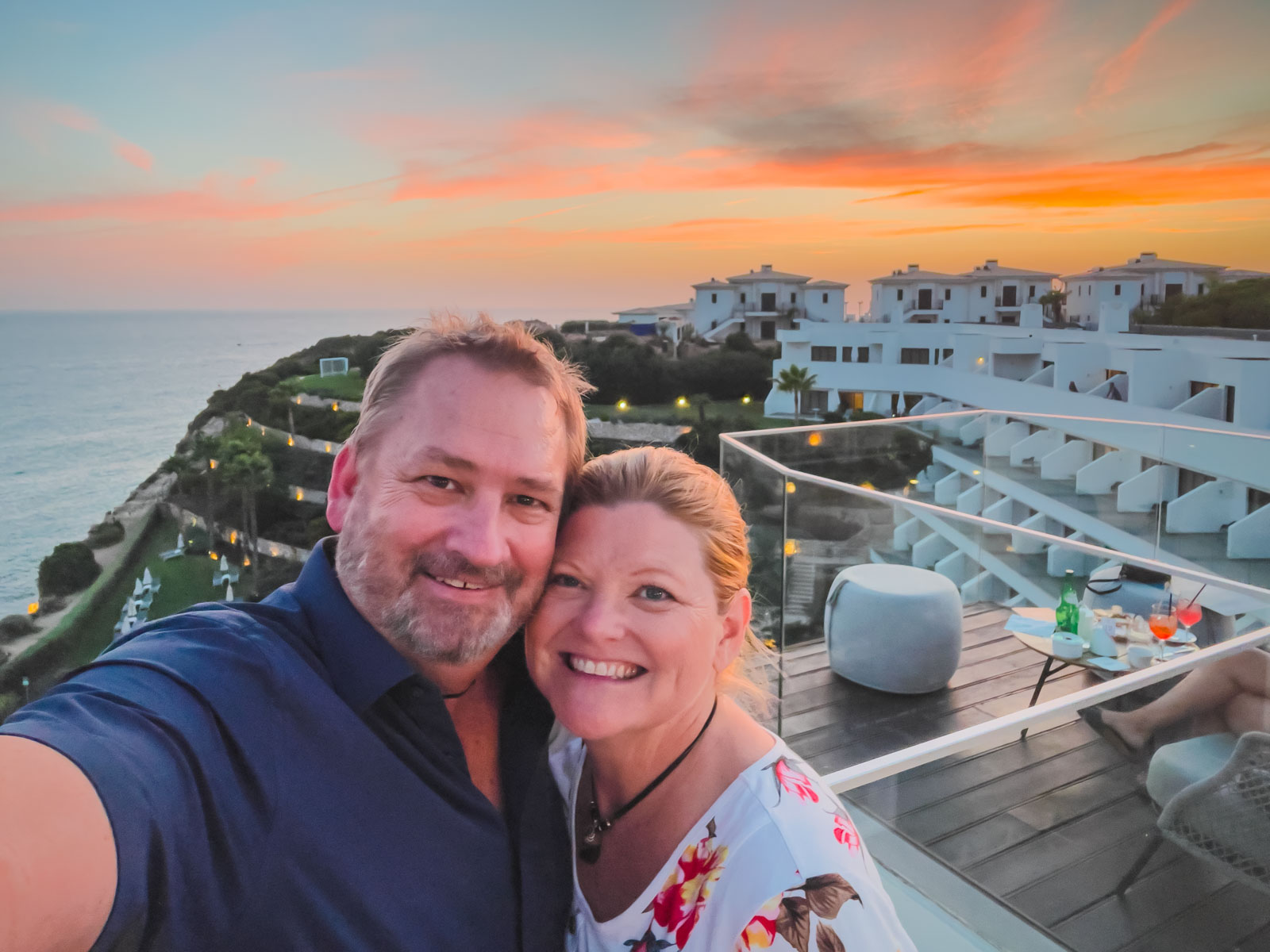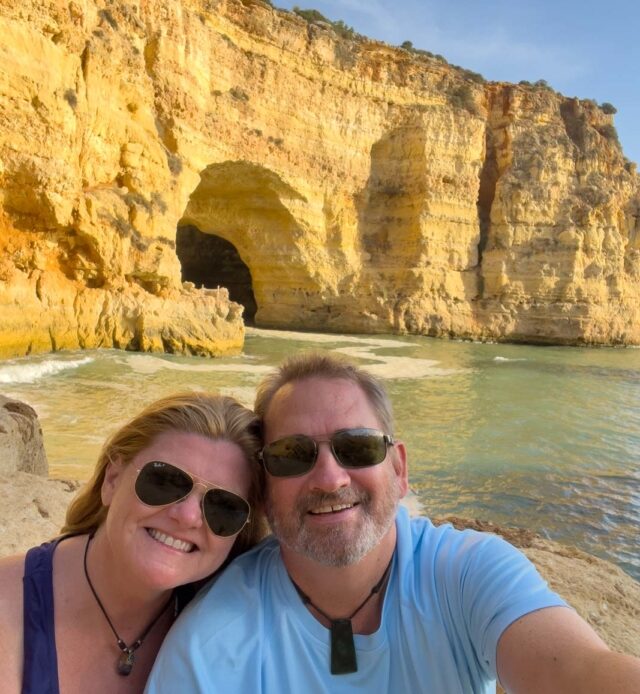We’ll start with the good news: Portugal is one of the most affordable countries in Western Europe. We have just returned from our 3rd time in Portugal and have a good idea what the costs of visiting this country are right now. It’s a captivating country of cliff-laden coastlines, with sea caves like Benagil and picturesque village scenery less than an hour inland. And that’s all before even thinking about its hearty cuisine, which is full of delicious pastries and seafood dishes.
As a whole, Portugal is not expensive to visit. But if you want to save money even further, there are definite ways to do so. Whether you choose to stay in major cities or a remote village near the Algarve, this guide will show you what to expect to pay when visiting Portugal. Most importantly, it will help you stretch your precious dollars further to have an even more incredible experience for less money.
Is It Expensive to Visit Portugal?

As we’ve just said, Portugal is not one of the stereotypical expensive countries in Europe. Sure, you get the usual peak season rates, especially in tourist hotspots. But, overall, Portugal is great for those on a budget. It has such a laidback travel style that it naturally encourages lower prices. You have stunning landscapes and stunning beaches; chances are you’ll be lapping up nature for nothing more than public transportation costs at most.
Don’t just take our word for it, though. How much it costs for you to visit Portugal depends on your personal preferences. Here are the different categories and their costs per travel style that you should budget for.
Cost of Accommodation


Portugal has a great selection of accommodations and a solid tourist infrastructure. The main thing to note is that it has areas of condensed tourism, which mostly sit along its coastline, while inland areas, especially around the Spanish border, are nearly empty of mainstream visitors.
Larger cities like Lisbon and Porto offer wider choices in accommodation types, with many mid-range properties and even hostels. More remote areas have more B&Bs and vacation rentals. Costs vary depending on location, with demand being the factor that most spikes prices.
Keep in mind that for remote areas and vacation rentals, you’ll likely require car rentals at an extra cost. Accommodation location might seem like something you can skimp on to save money, but in reality, it often shifts the cost elsewhere – either to public transportation or car rental.…
Click Here to Read the Full Original Article at The Planet D: Adventure Travel Blog…
